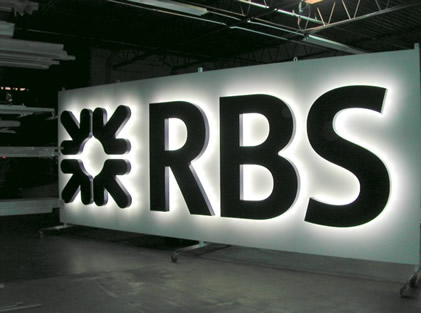Investing
Monday newspaper round-up: RBS branches, BP, Virgin

RBS branch spin-off; BP share buy-back; Virgin Atlantic hits Scotland
The UK government is eyeing possible plans to turn 316 branches owned by Royal Bank of Scotland into a state-backed business lender. The move is seen as an option if no buyer can be found for the estate, which RBS is being forced to sell in return for receiving state aid during the financial crisis four years ago.
Santander UK had agreed to buy the branches, which have 1.8 million retail customers and 240,000 small business accounts, but the Spanish-owned bank pulled out of the 1.65 billion-pound deal last month after lengthy talks. [The Scotsman]
BP could be poised to buy back up to £4bn of shares to prop up its flagging share price, in a move likely to anger American regulators. The oil giant has a war chest from the $12.3bn sale of its stake in TNK-BP to Russia’s Rosneft. BP said last week it would pay $4.5bn to resolve criminal and civil charges over the April 2010 rig explosion in the Gulf of Mexico that killed 11 workers and caused the worst US offshore oil spill.
A BP spokesman declined to comment on reports that it will engage in a share buyback. [The Telegraph]
Sir Richard Branson’s Virgin Atlantic airline will go head-to-head with British Airways next year when it begins flying passengers between two Scottish cities and London Heathrow. Virgin today said it had been offered all the short-haul take-off and landing slots available following the takeover of BMI by BA’s parent company, IAG.
It plans to begin services from around 31 March and will focus on “multiple daily flights” between Edinburgh and Aberdeen and Heathrow. [The Scotsman]
Cracks are beginning to appear in Apple’s perfect façade. In the past eight weeks the technology giant’s value has fallen by the equivalent of the entire market capitalisation of J.P. Morgan Chase as investors have raised doubts about whether the world’s largest company can sustain its momentum.
Apple’s stock has fallen from a peak of $702.10 in mid-September to $527.68 on Friday, wiping over $165 billion (£104 billion) from its market value. The sell-off was particularly severe last week, with Apple down 6 per cent since Wednesday as hedge funds booked the profits they had made from the stock’s near doubling in the first seven months of the year. [The Times]
EU officials have begun work on a plan to create a long-term budget without the UK in a move that reflects mounting frustration that Britain’s demand for a spending freeze cannot be reconciled with the rest of the bloc. Both EU officials and national diplomats have been studying the legal and technical feasibility of devising such a budget, according to people familiar with the discussions, ahead of a two-day summit beginning on Thursday in Brussels, where the EU’s 27 heads of government will try to reach an agreement on the long-term budget. [Financial Times]
Britain needs to urgently overhaul its accounting rules as they are dangerously distorting bank profits and leading to confusion over executive pay, some of the country’s biggest investors and pension funds have warned. In a letter to Business Secretary Vince Cable, the investment houses, which include Threadneedle Investments, the Co-Operative Asset Management, London Pension Fund Authority and Railpen, said accounting rules are “harming” shareholders and destabilising banks and the economy. [The Telegraph]
Non-bank lending markets face unprecedented levels of government intervention under sweeping new proposals to tame “shadow banking” laid out by global regulators meeting as the Financial Stability Board. The Basel-based regulatory group made clear on Sunday that it intends to push for tighter oversight of any part of the $67 trillion sector that takes on bank-like attributes such as using short-term assets to fund longer-term lending, known as “maturity transformation”.
They also intend to set global capital and liquidity standards for non-banks that could be subject to investor panics akin to a depositor run. [Financial Times]
Executives who presided over one of Britain’s biggest corporate collapses of recent years will not face action by the City regulator. Two years after Connaught, the once fast-growing FTSE 250 social housing contractor, tumbled into administration, the Financial Services Authority has closed an investigation into whether the company’s directors or senior managers broke financial rules.
The FSA looked into “various circumstances surrounding the collapse of the company” but closed the case after finding insufficient evidence to take action, the regulator said. [The Times]